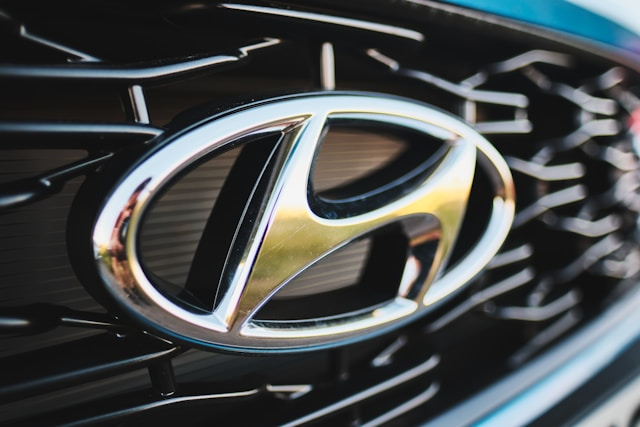(TURKEY) Pegasus Airlines has banned the use of power banks on all flights starting August 6, 2025, after new safety rules from Turkish aviation authorities. This immediate move affects every passenger flying with Pegasus Airlines, both within Turkey and internationally, and reflects growing concerns about the risks linked to lithium-ion battery devices on airplanes.
The ban comes after a recent incident on an Asiana Airlines flight from Istanbul to Seoul, where a power bank got stuck between seats and created a fire hazard. The plane had to return to Istanbul, raising alarms about the dangers of lithium-ion batteries in flight. In response, the Turkish Directorate General of Civil Aviation (SHGM) issued new safety recommendations, leading Pegasus Airlines to act quickly. Turkish Minister of Transport and Infrastructure Abdulkadir Uraloğlu confirmed that these steps are meant to prevent accidents that could threaten flight safety.

What Does the Ban Mean for Passengers?
Passengers on Pegasus Airlines can no longer use power banks—portable external batteries—at any time during their flight. This rule applies whether the power bank is in your carry-on bag or checked luggage. The main focus is on stopping in-flight use, but travelers should check with Pegasus Airlines for the latest updates on whether they can still carry power banks in their hand luggage if they are not used. As of now, the ban is about usage, not outright carriage, but rules may change quickly.
Checked baggage rules remain strict. Power banks are generally not allowed in checked bags because of the fire risk. If you try to check in a suitcase with a power bank inside, you will likely be asked to remove it before your bag is accepted.
How Are Other Airlines Responding?
Turkish Airlines, the country’s main airline, has also put new rules in place. Smart luggage with non-removable lithium batteries is now banned from both the cabin and checked baggage. If your smart luggage has a removable battery, you must take it out and carry it in the cabin, making sure the battery terminals are covered or the battery is in a protective bag. All spare lithium batteries must be carried in the cabin and protected from short circuits.
These changes are part of a larger trend. Many international airlines allow power banks up to 100 watt-hours (Wh) in carry-on bags, with bigger devices needing airline approval. Devices over 160 Wh are banned everywhere. Turkey’s new rules are some of the strictest in the world, showing a zero-tolerance approach to in-flight use of power banks and extra caution with lithium-ion battery devices.
Step-by-Step Guide for Pegasus Airlines Passengers
If you are flying with Pegasus Airlines, here’s what you need to do:
Before Your Flight:
- Do not plan to use a power bank during any part of your flight.
- Check Pegasus Airlines’ official website or call customer service to confirm the latest rules about carrying power banks in your hand luggage.
- If you have smart luggage, make sure the battery can be removed and carried separately in the cabin. Cover the battery terminals or use a protective bag.
At Security and Boarding:
- Be ready for security staff to check your power banks and other battery devices.
- If you are carrying a power bank, make sure it is turned off and not being used.
- Follow all instructions from airline and security staff about battery-powered devices.
During the Flight:
- Do not use or try to charge any device with a power bank.
- Listen to the crew and follow their instructions about electronic devices and batteries.
Why Are Lithium-Ion Batteries a Problem?
Lithium-ion batteries can catch fire if they are damaged, squeezed, or short-circuited. In the tight space of an airplane cabin, a fire can spread quickly and put everyone at risk. Aviation safety experts agree that these batteries are a real danger, especially after recent incidents. The Turkish ban is seen as a smart step to keep passengers safe and may lead other airlines in the region to take similar action.
What Do Passenger Groups Say?
Some passenger groups worry that the ban will make travel harder, especially for people who need portable chargers for medical devices or accessibility reasons. However, most agree that safety comes first. Pegasus Airlines and other carriers are working to balance safety with the needs of travelers.
How Do Turkey’s Rules Compare to Other Countries?
Most countries, including the United States 🇺🇸 and those in the European Union, let passengers carry power banks up to 100 Wh in their hand luggage. Devices between 100 and 160 Wh need airline approval, and anything over 160 Wh is banned. Turkey 🇹🇷 now stands out for its strict ban on using power banks during flights, even if the devices are within the allowed size.
Historical Background and What’s Next
Rules about lithium batteries on planes have been getting tighter since the mid-2010s. Groups like the International Civil Aviation Organization (ICAO) and the International Air Transport Association (IATA) have set global guidelines. Turkey’s 2025 ban is a big step forward, driven by recent emergencies and a worldwide increase in battery-related incidents on planes.
Turkish officials have said these rules may soon become formal laws for all airlines flying in and out of Turkey, not just recommendations. Other airlines in the region are expected to follow. There is also talk among international regulators about making lithium battery rules the same everywhere.
Summary Table of Key Points
| Airline/Authority | Power Bank Use In-Flight | Power Bank Carriage (Carry-On) | Power Bank Carriage (Checked) | Smart Luggage Policy |
|---|---|---|---|---|
| Pegasus Airlines | Banned | Check latest rules | Not allowed | Battery must be removable |
| Turkish Airlines | Banned (usage) | Allowed ≤100Wh; 100–160Wh w/ approval | Not allowed | Battery must be removed & carried in cabin |
| SHGM (Turkey) | Recommends ban | Allowed ≤100Wh; 100–160Wh w/ approval | Not allowed | Battery must be removed & insulated |
| International (IATA/ICAO) | Allowed ≤100Wh; 100–160Wh w/ approval | Allowed ≤100Wh; 100–160Wh w/ approval | Not allowed | Battery must be removable |
Where to Get Official Updates
For the latest information, always check the Pegasus Airlines official website before you travel. You can also visit the Turkish Directorate General of Civil Aviation’s site for updates on national rules.
As reported by VisaVerge.com, these new rules are part of a worldwide push to make air travel safer as more people carry lithium-ion battery devices. Travelers should stay informed, follow airline instructions, and prepare for stricter checks and enforcement.
Key Takeaways for Travelers
- Do not use power banks on Pegasus Airlines flights.
- Check if you can carry, but not use, power banks in your hand luggage.
- Never put power banks in checked baggage.
- Remove and insulate batteries from smart luggage.
- Stay updated with official airline and government sources.
By following these steps, passengers can help keep flights safe and avoid problems at the airport. As rules keep changing, staying informed is the best way to travel smoothly and safely.
This Article in a Nutshell













